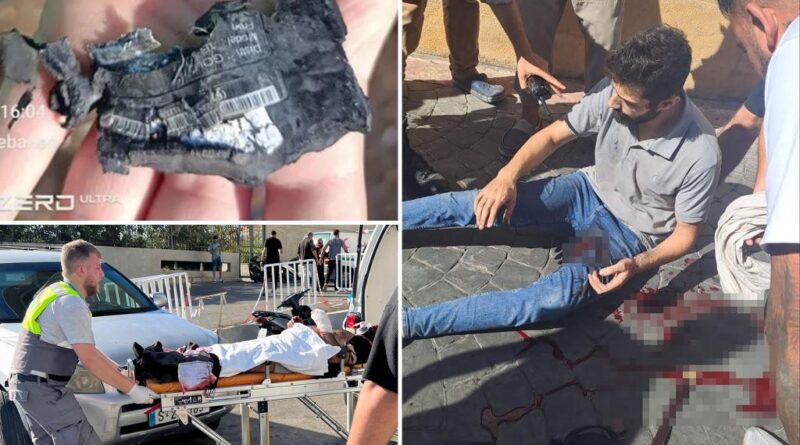Israel’s pager communication effectively conveyed a strong message to Hezbollah

There was a remarkable act of counterterrorism recently – the remote detonation of sabotaged pagers, walkie-talkies, and other devices belonging to Hezbollah terrorists.
Although Israel is not claiming credit, it is commendable.
The operation resulted in at least 26 fatalities and numerous terrorists being hospitalized.
It significantly hindered the communication abilities of the Iran-backed terror group, leading its members to be extra cautious about their next moves: Will their computers explode next?
Or their cars?
Even their rockets?
The precision of the operation aimed to minimize harm to civilians, which is typical of Israeli military operations.
These strikes serve as a reminder to all of Israel’s enemies that attacking it also endangers them and those around them.
It was not an escalation, but rather a response (or the beginning of one): Since Oct. 7, Hezbollah has launched thousands of drones, missiles, and rockets into Israel, causing significant damage and casualties.
Therefore, the pager operation was justified: Israel has demanded that Hezbollah cease the rocket attacks and relocate north of the Litani River, otherwise risking a full-scale war with Israel.
Under UN Security Council Resolution 1701, UN peacekeepers were supposed to ensure the disarmament of Hezbollah south of the river, but this has not been achieved in the 18 years since the resolution was passed.
Israel is not seeking war, but Hezbollah’s refusal to relocate and stop the rocket attacks leaves little choice but to prepare for full-scale conflict
As a result, Israel has adjusted its war objectives to include the return of residents near the Lebanon border and has deployed more troops to the north.
It is not too late for Hezbollah – and its backers in Tehran – to avoid the impending disaster.
However, in the likely event of war, Israel needs every advantage it can get.
The destruction of pagers and walkie-talkies provides one such advantage.



